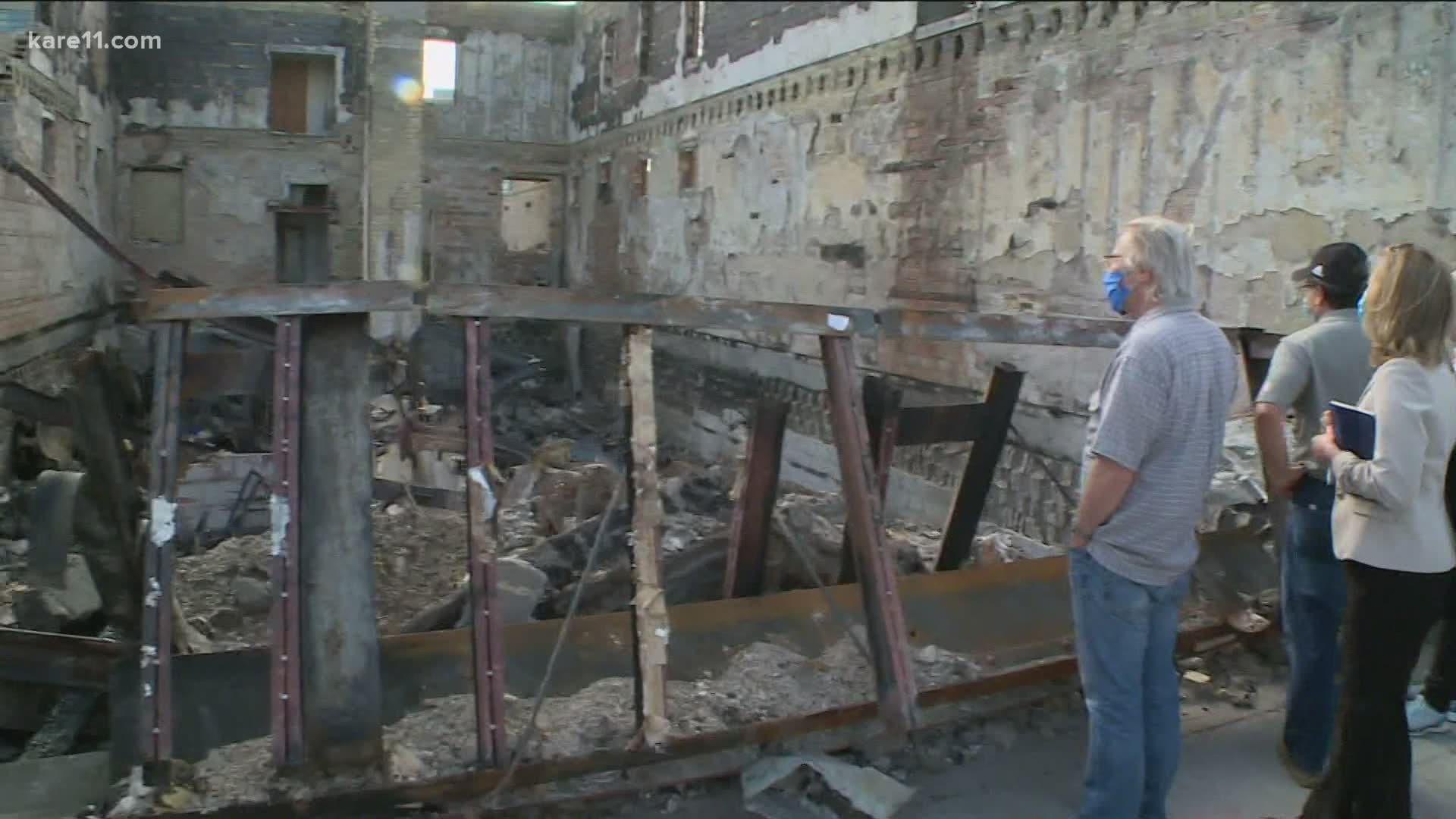ST PAUL, Minn — Nine months after rioters burned and trashed hundreds of buildings in key commercial corridors in Minneapolis and St. Paul, the state's divided legislature has yet to come through with assistance to help small businesses rebuild or recoup uninsured losses.
The DFL-controlled House is taking yet another swing at it this session, but it's unclear if the GOP-controlled Senate will ever agree to that aid.
The House Tax Committee Thursday passed the latest version of the PROMISE Act on a straight party line vote and sent it back to the House Ways and Means Committee. The companion bill in the Senate is yet to see action.
"Over 1,500 businesses were damaged. Some of them were completely destroyed," Rep. Mohamud Noor told colleagues.
"As I go through my district there's still rubble on the ground in many places. And many in many areas businesses are still struggling with both the pandemic and the struggle to rebuild."
Noor, a Minneapolis Democrat, is the chief author of the PROMISE Act, an acronym for Providing Resources, Opportunity and Maximizing Investments in Striving Entrepreneurs. The goal of the act is the restore the businesses and nonprofits along Lake Street and West Broadway Avenue in Minneapolis and University Avenue in the Midway area of St. Paul.
The bill currently includes:
- $167 million in direct assistance to small business
- $125 million to reimburse businesses for uninsured losses
- Sales tax relief on construction materials
- Property tax relief until the year 2025
The package is designed for those who owned businesses before the civil unrest erupted after the death of George Floyd while being restrained during an arrest by Minneapolis Police. Businesses would have to remain in those corridors for at least three years to receive full forgiveness of the loans.
The bill -- House File 6 -- lays out a system of reviewing applications and making sure that insurance claims have already been denied.
The House passed a version of the Promise Act last summer, but it has yet to gain traction with Senate Republicans. Many have said they view the PROMISE Act as a "bailout" for Minneapolis Mayor Jacob Frey and the Minneapolis City Council.
Republican leaders assert that Frey and council members are at fault for the escalation of the riots, and because of that they shouldn't expect taxpayers from outside of Minneapolis to take part in rebuilding the city's battered retail zones.
Democrats point out that the business owners -- many of them Black, Indigenous, immigrants and persons of color -- were victimized through no fault of their own. They say state lawmakers should step in and help the riot victims the same way they've historically helped towns across the state after natural disasters.
"For decades, whether it's floods in southwest Minnesota, or whether it's fires in Wadena, we've stood together arm in arm to help Minnesotans in need," Rep. Michael Howard, a Richfield Democrat, argued.
"Until now, apparently."
Democrats have also argued that at least half of those arrested for breaking into buildings and setting them on fire were from other cities across Minnesota and other states.
The lack of action isn't from a lack of awareness. Republican lawmakers from both the House and Senate took part in tours of the damaged retail areas in the aftermath of the rioting. House Republicans have heard testimony from riot victims seeking help holding onto their family businesses.
Senate Republicans held a series of three hearings during the summer of 2020 in an effort to decide who was at fault for the Twin Cities riots, and the toppling of the Christopher Columbus statue on the Capitol Grounds.

